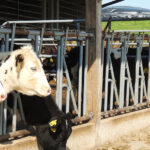Top: Photo courtesy MacCain Foods (Canada)
The Symposium for the Use of Organic Soil Amendments (SUOSA) will take place on the Southern Gold Coast in Coolangatta, Australia, September 16-18, 2025, bringing together experts from agriculture, environmental sciences, economics, and policy to discuss the benefits, challenges, and future directions for the use of organic soil amendments in agricultural and horticultural production systems. “Over the past 15+ years, federal and state government agencies, together with industry, have spent tens of millions of dollars on a wide range of R&D projects that sought to improve management, processing and use of agricultural and urban organic residues in terms of reduced GHG emissions, reduced risks, and improved understanding of the agronomic and environmental benefits of using organic soil amendments in agricultural production systems,” explains Johannes Biala, Director of the Center for Recycling of Organic Waste & Nutrients at the University of Queensland, and one of the SUOSA organizers. “Therefore, it is time to take stock, compile and assess available research results, identify knowledge gaps and research needs, and outline a way forward for integrated and cooperative R&D that supports manufacturing and use of high quality recycled organic products, and facilitates development of enabling government policies. A key goal for this symposium is to provide a platform and forum for all parties involved in and interested in the use of organic soil amendments to advance the above objectives.”
This multi-disciplinary event will explore the agronomic, environmental, societal, regulatory and policy dimensions of using both solid and liquid organic amendments, which include raw or processed animal manures, agricultural residues, food and fiber processing residues, and urban organic residues, and where processing can include composting, pyrolysis, drying, digesting, insect farming, pelletizing, granulating, value adding, etc. Discussions will address nutrient management, soil health, carbon sequestration, circular economy, regulatory frameworks, and farmer benefits and adoption.













